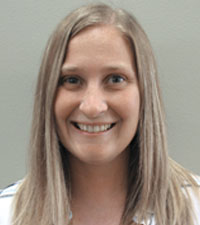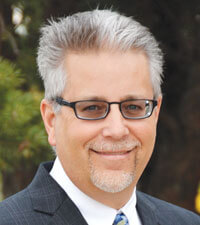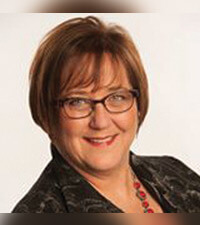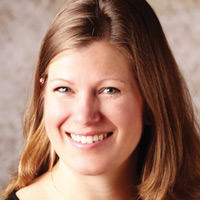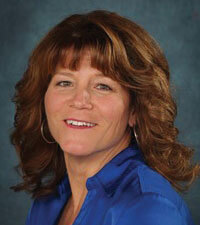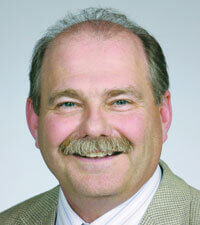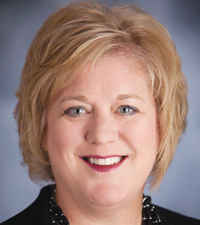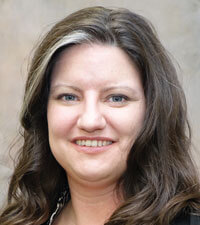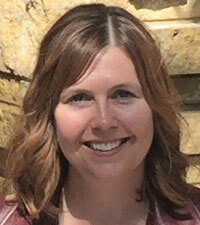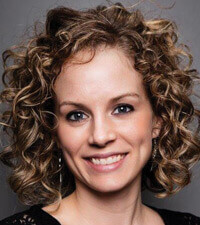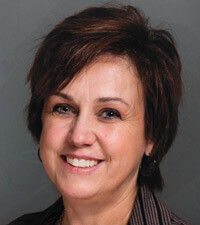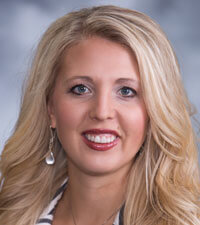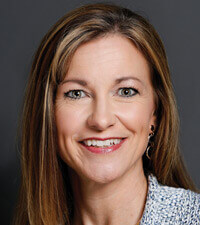Unplanned Life Changes
“Stuff happens.” This is the G-rated version of a term we’re all familiar with; such is life, indeed. Although there are many things that are impossible to predict with certainty, there are ways to be prepared for just about anything that may unexpectedly arise along the way. Across the spectrum of unplanned life circumstances – health issues, accidents, divorce, death, etc. – there are professionals who are ready and willing to help you with getting everything in place, too.
Prepare for the Worst, Hope for the Best
Just as the saying goes, it’s smart to be proactive in addressing the expected and unexpected alike, and more often than not, accomplishing that is simpler than it seems.
Unfortunately, there isn’t a person alive who doesn’t run the risk of experiencing a health issue, whether injury or illness, that presents with little-to-no warning. For the normal run-of-the-mill cold or flu bug, most know the steps they would take to address the issue – contact the primary physician’s office, go in for a visit, and follow doctor’s orders. That’s the plan in place, even while the thing that’s being planned for remains completely hypothetical.
Since there are a substantial number of possibilities out there that could strike at any time, it can seem overwhelming to devise a plan to address all of the potential ‘what-ifs.’ Yet, just as in the example provided, most of the preparation simply lies in being educated so that when it’s time to react, you know exactly what’s next.
As it applies to seniors, this approach is quite fitting. “At Immanuel, we serve seniors, and very often we are helping someone whose spouse or parent has recently experienced an unexpected illness or something that’s caused a rapid decline in health,” says Connie Chisholm of Immanuel. “As a result, many find themselves in a position where they need to find a community that can provide additional care and services immediately. This can be one of the hardest unplanned life changes one can have. We are here to be a resource and help navigate senior living, care, and services.
When faced with an immediate move to a senior living community, individuals are often met with a whole host of emotions and stressors. They may have to downsize a larger home to move into a smaller, more manageable location. The thought of having to part with cherished items that hold significant memories is daunting. Enlisting the help of a moving company specialized in the needs of seniors can be very helpful. Such organizations are expert in sorting, packing and moving precious belongings. Another added stressor can be family dynamics if some members are more supportive than others.
While difficult to imagine, we all have to face unexpected life events at some point. But, when you are a senior or an adult child of an aging parent, the impact tends to be more severe in nature. We often hear from our residents and families that they wish they would have made the move sooner. My recommendation is to begin envisioning what your lifestyle looks like in your senior years, prior to retirement and well before an immediate health crisis. Being proactive allows the time to look for a community that suits the individual versus fitting the person into the community.”
Katie Hammer of The Waterford Communities also points out, “An unplanned life change is just that, something that unexpectedly happens to you or your family. This change can be a difficult one, or it can be something that is good. At The Waterford Communities, our residents and their families deal with unplanned changes more often than not. A few of these changes that we see are a sudden decline in a resident’s health, falling at home or in public, or death of a spouse or caregiver.
Often we find the most difficult thing for individuals is deciding what the next step should be, or how they should handle the change that just happened. In truth, knowing what the right thing to do as a result of change is always difficult for anyone, not just the elderly. What we try to do in these situations is present the individual and their family with all of the different options that are open to them. This includes in-home health care, day or respite care, and going over the various long-term care services. If we aren’t able to provide proper and safe care then we will do our best to offer guidance on what is going to be in their best interests moving forward. Making sure you and your loved ones are happy and completely satisfied is our number one goal.
At The Waterford Communities, we urge families to make the necessary calls and ask questions when unplanned life changes take place, if not beforehand to be prepared when the time comes. We are always willing to sit down and discuss any questions or concerns you may have about any unplanned changes you are experiencing. We understand this is never an easy process, and we do our best to make it as easy and comfortable as possible for all involved.”
“So, what happens next?” This is a question that will come up frequently at different times during a person’s life when faced with something that was unexpected to a certain degree.
“In emergency situations, I often find that seniors and their families truly have no idea which way to turn, what to ask, or where to start,” says Theron Ahlman of CarePatrol of Nebraska. “Many are also facing major issues as a result of the incident, such as selling a house, getting insurance policies handled, and putting legal documents in place. We have a list of vetted companies that we recommend to help the families navigate those issues, and have found that this makes the situation much easier. Since we’ve done most of the legwork, it allows people to move forward quickly and confidently.
At CarePatrol we help a lot of seniors and families who have experienced a fall or some type of medical issue and then aren’t able to go back home. This can be a very challenging time, and even more so if they weren’t prepared to transition to a community and have no idea where to start. Typically people can recall a few names of local communities, perhaps they’ve driven by on their way to work or have heard them in conversation, or are given an exhaustive list based on the area they live. Neither really helps much with isolating the communities that would best fit their wants and needs from the bunch. Our process helps to ensure all items of importance are taken into consideration. We meet with the senior and their family to learn their wants, needs, finances and personality. We then find the best matches based on that care discovery, followed by reviewing the state’s care and violation history to make sure it’s a safe community, and one that’s able to meet their needs. Next, we schedule the tours, personally escorting whoever would like to attend. This allows us to help them ask the right questions and look past the fancy chandeliers and grand pianos to truly understand the care they will receive. Furthermore, we stay in contact with the senior and the family after moving in to make sure they are happy and that everything is being done for them as promised.
For those being discharged shortly or in emergency situations, there’s a need to act quickly. We also know which communities work in a timely fashion to get a senior moved in and can make it happen that day, whereas some communities can take a week or more to get everything handled, which wouldn’t work in these particular instances.
While the reason for the move may have come as a surprise, we want to take any other unexpected issues out of the equation. For instance, once you get your loved one all settled in, what happens if they are in a wheelchair and need help getting back and forth from their room, but the staff at that facility isn’t authorized to do so? Or similarly, what if transitioning to a higher level of care as it’s needed isn’t a possibility within the community you’ve chosen? In either case, another move will be necessary, and you’re right back where you started in the first place.
I always suggest to seniors that it’s never too early for us to go out and tour communities. It costs nothing for us to go check them out together. Of course, a change in health condition may alter the decision to go with the community that they previously liked, but it may also help them choose to make the move sooner and in doing so, avoid a fall or injury. Many people wait too long while living in an unsafe situation, or at the point where they aren’t taking medication’s as directed or getting the proper nutrition. To look at a community and get the process going before something happens or to be prepared, call CarePatrol anytime at (402) 785-2262 to speak with a Certified Senior Advisor who will walk with you hand in hand through the challenging process at absolutely no cost to you or your loved one.”
As previously mentioned, a move may be required as a result of an unexpected life event. Working with experienced professionals in this specific area, you’ll also benefit from guidance as to logistics and their ability to mobilize quickly to accommodate the constraints you’re under. For seniors, a move from their house to independent or assisted living will require downsizing, which can be difficult. Utilizing a storage facility, like Kingery Construction’s newly-constructed Store.It.All. facility in north Lincoln, might also help minimize stress during an unplanned move, allowing for the more pressing matters to be handled with the assurance that possessions will be safe and sound in the meantime.
“It’s common for those entering their senior years and beyond to make the move from a house to an apartment setting or facility where they receive a higher level of care,” says Rod Berens of Store.It.All. “The kids are oftentimes actively involved throughout the process, helping to make the necessary arrangements and get their parents settled in their new home.
Many individuals, regardless of age, have no idea what size of unit will be required or for how long they’ll need it when they first make contact with us. Furthermore, there are many things that can come up unexpectedly before, during, or after a move that can impact storage arrangements. A good starting place is to call and talk to a professional at the storage facility you plan to use. At Store.It.All., we understand that circumstances can be complicated, and apply our expertise to help guide our clients through the decision-making process. Before we offer specific recommendations, we start with questions that help us understand the key details. This, in turn, helps get people thinking about what’s needed and the information they’ll still need to gather, and they learn more about the options that are available at the same time. We also make it a point to be very accommodating of our clients’ needs, offering the option of changing unit size once everything is in place and ready to go as well as holding units at our discretion or arranging for multiple units together.”
Berens offers a final recommendation: “For those who are downsizing or moving an elderly person to a smaller home, put thought into what you or your loved one is holding onto and why. Many items can be donated or discarded before everything goes into storage, making it much easier when going through everything later on down the line.”
Building Your Support System
In the best and the worst of times, no matter what you go through in life, having a strong support system in place is vital. In combination with an established plan that takes into account the unknowns, you’ll be in good shape no matter what may come your way.
Along with family and friends at the core of your support system, there are likely many others who will be on your team. As evidenced by the diversity of sources consulted on this topic, there are a host of local professionals across a wide variety of industries that will be there to offer support in some capacity, and be honored to do so. For those who experience loss, grief support groups or counseling can be very helpful. For family members who also act as caregivers, this might include taking advantage of respite care. For those seeking to maintain independence while they manage a health issue, in-home care would be an option to consider.
Kris Beckenbach of Guardian Angels explains in detail how home care can be utilized in the event of an unplanned life change:
“Guardian Angels is called upon to assist an elder when there is an injury or diagnosis that impacts their ability to live independently. Take a fall or hip fracture that lands you in the hospital, for example. Sooner than expected, you’re told it’s time to go home. But now what? How will you get around to the routine places you need to go? How will you prepare meals and keep up with chores around the house? Family members and friends may be able to help for a few days but the time needed for the recovery process varies, potentially stretching on for months. A service like Guardian Angels can help fill the gaps by making the meals, providing transportation to follow-up appointments, performing light housekeeping and helping with personal hygiene. Individuals heal in their familiar, comfortable surroundings, family members provide loving care when they can, and Guardian Angels takes the pressure off of everyone.
For example, here’s an instance where one of our caregivers was able to help a client incorporate an urgent lifestyle change due to an unanticipated health issue: ‘I met with a gentleman recently who was diagnosed with Congestive Heart Failure. He had been cooking for himself since his wife passed away a few years ago. Suddenly he was being told to limit his sodium and fluid intake. The hospital dietitian gave him plenty of counsel and printed resources to help after he got home. But here he sat in his kitchen totally overwhelmed by having to think about reading labels on every item he was used to buying at the grocery store. I was able to offer a listening ear, encouragement to make good choices, and support with follow-through as he eased into his new reality.’
We at Guardian Angels know that when people are faced with a new reality, they can’t wait weeks for help. We will meet with a family, usually within a few hours of their first call, to discuss how home care services can lift their burden. Our team members provide a calm voice to help think through needs and services. Trained caregivers are assigned right away for days, weeks, or ongoing as needed. Caregivers can be scheduled for one hour to help with a meal or shower, or for 24 hours a day. Our services are tailored to what the client needs. In fact, Guardian Angels began in 2003 and are honored to have a few original clients still part of our family.
Services for elders are abundant in Lincoln and continuing to grow as the demographics change. Home care of all types, medical and non-medical, along with all sorts of residential living options are available. Get informed before there’s a need. Ask for a consultation with several home care companies to see which one is a good fit before a need arises. Tour residential living communities and learn the difference between independent, assisted, memory care and skilled care. What resources, if any, might you have available in long-term care insurance? Will your insurance cover non-medical home care like Guardian Angels? Gather information and share it with those who will come along side when life takes an unexpected turn.
Our years of experience and connections in the community make Guardian Angels not just a service provider, but a resource for information. Our aim is to guide people to the best solution for whatever challenges they face.”
Your physician and their staff will also be a part of your team as far as supporting your continued health and wellbeing are concerned. Serving in this role for her patients, Dr. Jenna Van Pelt of Women’s Clinic of Lincoln, PC explains, “As OB/GYN’s, we have the special privilege of taking care of women throughout their lives. We get to be there with them when they experience many events in their lives. One of those that will vary for everyone is pregnancy. It might be an unexpected pregnancy, or a planned pregnancy that unexpectedly happens to be twins, or an unexpected complication with pregnancy – life is full of surprises, that’s for sure. We also help to take care of people who are going through a wide spectrum of health-related problems, from infertility and obstetrical issues to surgery for gynecologic issues, and unfortunately in some cases, a cancer diagnosis. All events affect a woman’s life, and we help guide the patient based on what will best fit her needs, and also provide recommendations based on what she is going through as a result of unexpected circumstances. These types of things can show themselves in a variety of ways, and patients will need different things, so we offer our support and care based on the individual. We have a variety of services available at our office, including counseling, infertility services, obstetrical and gynecological services.”
Having The Tough Conversations
When establishing a solid plan for what’s to come in life, and in preparing for the difficulties that one might face, it is imperative is to have a conversation with your loved ones to get on the same page.
“No one ever plans a life-changing event, but they do happen,” says Tracy Haefele of Legacy Retirement Communities. “Whether it’s a serious illness, a fall or an Alzheimer’s diagnosis, any of these would be life changing. We recommend that you surround yourself with people who can help you navigate through the changes in order to find the best care for your loved one, to keep them as safe, happy, and fulfilled as possible. While it’s not always easy to talk about, Advance Care Planning is incredibly important and should be discussed with family members.
For memory care, in particular, people struggle with the amount of information that they suddenly need to understand to make informed decisions for a loved one. But regardless of the situation, a caregiver support group can be helpful and make your situation seem less overwhelming. Additionally, families may want to reach out to friends within their own community or social group. Odds are they or someone they know has dealt with a similar situation and they may have sound advice to offer.
No matter your age, Advance Care Planning is key to being in control of your life and making your own decisions through the end of your life. It may seem odd that a Life Enrichment Director encourages residents to think about end of life, but one of my roles is to help our residents stay independent and make their own decisions for as long as possible. Incorporating Advance Care Planning helps them do so. When residents’ directives are in place they can live life knowing that their wishes will be granted whenever necessary. Advance Care Planning (also commonly referred to as Advance Directive) includes things like:
- Do you want to be resuscitated if your heart stops beating or would you prefer to go peacefully?
- What type of life-sustaining actions do you want to have done for you if you can no longer speak for yourself?
- Who do you want to speak on your behalf when you can no longer do so?
The medical community in Lincoln wants to follow your wishes, but if you don’t have them written down, you make their job far more difficult. Not to mention that if you make those decisions, your family will not have to make those difficult, emotionally charged decisions either. Then your family’s responsibility is to make sure your wishes are followed.
I suggest you use either the Advance Directive form or the Five Wishes form, which are readily available online or can be picked up at any of our locations. We would also be happy to send those forms out in the mail.”
Rick Carney of Butherus, Maser & Love Funeral Home adds, “So many people leave our offices saying ‘I hope that’s what mom would have wanted,’ or ‘I hope dad isn’t mad at us for doing this.’ The indecision and simply not knowing what a loved one’s wishes were is often the most difficult thing to deal with. We all want to do the right thing for our loved ones but if there has been no discussion or direction given, it can leave many unanswered questions. Therefore, communication is critical. It can be difficult, it can be awkward. But please have a discussion with family about the type of service arrangements you would prefer and have that information on file at the funeral home of your choice. I would recommend pre-payment as well to avoid the money issues among survivors, but that is secondary. Put your wishes in writing first.
One key way we often help families is when they are dealing with Medicaid spend-downs. Nobody wants to think this will be something they have to deal with, but changes in health and situations frequently will mean we assist families with this process. If we can assist a family in setting aside and protecting those assets for funeral and burial expenses, we would be happy to do so.
While we don’t deal with every need involving end-of-life, we are well connected with many businesses and organizations and would be happy to assist in getting a family in front of the right people to help them with the issues they are facing. Lincoln is a great city with a great network to help people through these difficult transitions.”
Likewise, Amy Fish of Lancaster Rehabilitation Center issues a similar call-to-action, emphasizing the importance of familiarizing yourself with the various resources that are available here in our community:
“We help those who are experiencing unplanned life changes all the time at Lancaster Rehabilitation Center. The most difficult aspect of an unplanned life change is the fact that it is unplanned. As such, my advice is to start the conversation early before an unexpected event occurs. Knowing that the unexpected could always happen, it’s important to take the time to plan for what might be needed in the future. Adult children should take the time to engage in conversation regarding the future care needs of their parents. Often, when something unexpected happens, we’ll find that those now making decisions on behalf of their loved ones are unaware of things like insurance policies, care directives, or how to manage their affairs in the interim of their recovery. Research the many options for care in advance. Know and understand what is important regarding their preferences for social, spiritual, and clinical care. This will help alleviate some of the anxiety and stress that occurs when managing the unexpected.
There are many resources and checklists available on about every subject you might have a question as it relates to services for seniors. The guiding information I would share with seniors and their adult children is to identify and define their priorities when evaluating skilled care nursing settings. Beyond the checklists that Medicare or others may provide, tour the facilities in advance, and listen to your gut. Evaluate the environment, gather a better understanding of the services provided, and then decide if it fits your personal preference. I always suggest to adult children to know in advance the insurance coverage benefits their parents may be participating in, and how to access those benefits should they become incapacitated. Know and understand the limitations based on the provider’s participation in programs such as Medicaid, VA, and/or Medicare. That information will help narrow decision making.
Furthermore, when something unexpected occurs, rely on the expertise of others to help guide the decision-making process. Don’t be afraid to ask plenty of questions in order to ensure you have all the facts. Some health care providers have limitations on Medicare, Medicaid, VA, or insurance policy participation. You always want to ensure you’re taking full advantage of the benefits or programs you qualify for. And remember to take it one step at a time. Let others help in whatever way they can. Focus on the most critical decisions first, knowing that there is plenty of help available.”
She concludes, “The Lincoln community is resource rich! Use these many experts to your advantage. Call upon trusted physicians, outreach programs, and the many health care facilities to help guide your decision making. As part of that network, our team at Lancaster Rehabilitation feels it’s important to serve as a resource to those in need of skilled care services and other outpatient needs. Community members are welcome to call us anytime with questions. We’re glad to help!”
Dealing With Loss
Loss is a part of life that we’ll all experience at some point. The one that comes to mind first is the passing of a loved one, but there are a number of others that also have a profound impact, such as loss of limb or senses, loss of memory or loss of independence as one ages, loss of hair from chemo, and so on. In any of these instances, though moving forward has its distinct difficulties, you can be sure that support for anything you’ll encounter is out there.
“Adjusting to the losses associated with catastrophic injuries/illnesses can be extremely difficult for patients/families,” expresses Tracy Broussard, LCSW, ACM-SW of Madonna Rehabilitation Hospitals. “Our interdisciplinary team supports our patients/families throughout this grieving process by validating concerns, utilizing the strengths of the patients/families, anticipating needs and offering creative solutions to any barriers to independence. They use collective clinical expertise to guide our patients/families to attain what may have originally been thought to be impossible. We all work together to promote hope via medical and rehabilitative interventions that help our patients/families recognize that they can improve and experience high-quality lives despite these unplanned life changes.
Our Case Management team, consisting of nurse case managers and social workers, help our patients/families navigate the impacts of catastrophic and devastating illness and injuries. Their role includes connecting patients/families to supportive services and resources that allow for the highest level of independence. This also involves working closely with external payor sources to help meet financial, social, and health care needs. Our team advocates for patients/families in times of crisis and vulnerability to ensure as much independence is restored or maintained as possible.
As previously mentioned, but important enough to repeat many times over, it is imperative that people are aware of the need for Advance Directives and Advance Care Planning, as any of us could experience a medical crisis that would leave us too ill to make our own healthcare decisions. We need to let our loved ones and medical providers know what care we would want if we were faced with a medical crisis while we are able to clearly state our wishes. Having these conversations is a great start. However, our requests may not be followed if we have not shared them in writing in the form of Advance Directives. Many healthcare organizations offer Advance Directive resources free of charge. Legal Aid of Nebraska, the Nebraska Department of Health and Human Services State Unit on Aging, the Nebraska Area Agencies on Aging, and local attorneys are also great resources for Advance Directives.
Our team is very knowledgeable in ways to assist during these times of crisis. We are able to provide emotional and psychological support, anticipate needs and offer solutions. We are able to make connections with supportive services and community resources to promote independence. Our team fosters hope and confidence to help patients and families recognize all that they can do.”
With the decline in health comes a loss of independence, which can be a challenge to cope with in and of itself.
“It is difficult for almost anyone to feel like they are giving up their independence,” says Melissa Smith of Care Consultants for the Aging. “Accepting help is not easy, especially when people find themselves in emergency situations. Actually, many seniors find it helpful to have a caregiver assist them in their homes with little tasks before an unplanned life change occurs. This way if an emergency situation does come up, they are already accustomed to having a caregiver they know in the home, and it can make that change a little less stressful.
That being said, people usually turn to Care Consultants when an event occurs in their life that changes their ability to live unassisted. This can be a gradual change in which they begin to need assistance with meals, light housekeeping, and personal cares in order to stay in their homes. It can also be a more sudden change such as a fall or a hospital stay in which they all of sudden find themselves needing more care, possibly up to around-the-clock care. Care Consultants refers caregivers who are CNA’s and can assist clients from companionship to personal cares to hospice assistance. We have caregivers available from 1 up to 24 hours a day and on an ongoing, consistent basis or for short-term assistance in an emergency.
Regardless of the circumstances, it is always beneficial to decide what kind of care you may want and to communicate your wishes to your loved ones before a crisis occurs. Get your legal matters in order and determine who will be helping you make medical and financial decisions. It is also important to research home care and facilities to decide how you would like to spend your time if you come to a point where you need assistance with your daily routine.
Care Consultants produces the ElderCare Resource Handbook, a complete listing of services for seniors in the Omaha/Council Bluffs and Lincoln areas. Divided into five tabbed sections including “Government, Financial & Legal”, “Medical Support”, “Home Health Care & Support Services”, “Living Options” and “Senior Services,” the Handbook is a go-to resource for seniors and professionals in the community. The ElderCare Resource Handbook can be purchased for $8 or $12 with shipping. Call (402) 398-1848 in Omaha or (402) 488-3771 in Lincoln to get your copy or go online at www.careconsultants.com to view the Handbook for free.”
Indeed, the loss of something that has previously defined one’s identity can be a crushing blow, but with the power of a positive outlook and a little help from those with whom you choose to surround yourself, one that you can bounce back from in time.
“For those who have lost their hair, it can be difficult to look in the mirror and see a reflection of a person they don’t recognize,” says Brooke Ahlman, stylist and owner of Brookelyn’s Hair & Replacement. “It’s a constant reminder of something difficult they are facing. The best solution is to restore that image of themselves prior to whatever has happened in their lives, and we can help do just that.
At Brookelyn’s Hair & Replacement we can help anyone who has experienced an unplanned life change that has affected the growth or wellbeing of their hair. We offer non-surgical hair replacement and have worked with many clients who needed to get their confidence back and restore some semblance of normalcy in their lives. It is amazing how hair loss can affect a person even as a part of the normal aging process, let alone if it’s lost during the chemotherapy process or it’s necessary for the head to be shaved for surgery. Our systems are made with real hair, so nobody will know you are being challenged in life. They let you enjoy life just like you did when you had a full head of hair. You can shower, go on roller coasters, and live life as you want without feeling depressed or like everyone is looking at you.
Starting the process is as simple as coming in for a free consultation, which provides the opportunity to discuss what you are experiencing and how everything will work moving forward. After going over the options, if a hair system is the best for you, the next step is finding the closest match to your current hair. Custom systems take a little longer to get in than an off-the-shelf system, but this way we can get as close to the look you desire as possible.
At Brookelyn’s Hair & Replacement, we will be honest with you, don’t ever pressure you, and if we don’t offer the right or best solution for you and your needs, we will help guide you in the right direction as we understand that not everyone is the right fit for what we offer. If you would like more information, please feel free to contact me directly at (402) 649-0212.”
All things considered, “There are many events in life that can impact us in ways we were not expecting,” explains Janet Johnson of Choices Treatment Center Inc. “Unplanned life events can be particularly difficult to navigate — a fire that destroys a home, a business partner moving, divorce, illness, addiction, or the death of a loved one. Sometimes we ask ourselves, ‘How can I address my emotional stability while still trying to juggle my day to day responsibilities?’
It’s usually not until we take the time to pause that we feel the impact of our situation. Often individuals who present for counseling feel they have exhausted all of their problem-solving skills or have no further resources to explore. By building on one’s strengths, tweaking or adding new tools or options, and adjusting perspective, individuals can often feel successful when they readdress their personal obstacles. Whenever an individual gains a healthy view of their situation, they often find the support they need to make the next step.
Any event can create a need to address emotional wellbeing and Choices, Inc. can be there to help. Whether in a crisis, a family needing to explore options for a loved one, planning for the future, or a past hurt that has never been resolved, Choices has a licensed mental health counselor to meet your need.”
She further emphasizes, “Any time a challenging life event occurs, an overwhelming feeling we share is ‘alone.’ We feel alone in the incident that is happening, alone in our feelings of hurt, scared or ashamed. Alone in our desire to ask for help and alone in our pressure to make the right decision. We acknowledge how busy others are and feel as if we are burdens to our friends and family. We fear weakness when others need us to be strong and we fear this current event will change our lives forever.
For those living in fear, Choices would like you to know you are not alone. Through individual and/or family counseling, we can help you find solutions, support, and renewal in feeling good again.”
The Earlier, The Better
Just as with anything that requires planning, although seemingly contrary to their very nature, the unexpected things that may happen in life can, and should, also be taken into account well in advance. Take life insurance and retirement plans for starters.
“At Appreciation Financial, our focus lies in the areas of pension education, safe retirement strategies, and living benefit life insurance,” says Andy Storz, a local agent with Appreciation Financial. “All that we offer serves to ensure the financial security of our clients and their families, which can be compromised as a result of life’s major unplanned life events – death, disability, chronic illness, critical disease, or any reason someone might need to step away from their career earlier than expected.
Through a product called Indexed Universal Life, in addition to a traditional death benefit, there are living benefits that cover any of these occurrences. It also offers a cash benefit that can be used for emergencies or retirement.
The future is uncertain for us all. There are ways to safeguard your future that you may not have considered, so it’s important to be informed in order to take advantage of what’s out there. Also, there’s no minimum age a person needs to be to have coverage, and to benefit from it. For example, my 3-month-old son has a policy. It gives my wife and I peace of mind and support in the event something terrible should happen, yes, but it’s also an investment in his future that provides a respectable return. If we don’t have to use any of the benefits, the entire cost of the policy and then some is available when he turns 18. He can use it then, for college perhaps, or if he chose to continue it, those additional payments would also gain interest for the life of the policy. He’s covered in the event of an emergency and earning future income on that investment all the while.
The most heartbreaking appointments are those when something has already happened and the options are more limited. It doesn’t take much to have some sort of safety net in place. A lot of people don’t realize that even if they have group policies at work that cover death and disability, that those may not necessarily help with everything they might come across, or help as much as they might think. And, sadly, the benefits may not be there after they leave their job.
Getting out ahead of what may happen is important, and the younger you are, the easier it is to get protection at the lowest rate possible. My advice is to take the time to review what you already have established to ensure you’re maximizing your resources, and to find out what’s out there, and if anything is projected to change that would affect your future.”
Much like retirement planning and investments, funeral planning can also be conducted regardless of whether a person knows the time is near when it will be needed. “It almost goes without saying that death is one of the biggest unplanned life changes we as humans face,” says Jodi Freeman of Roper & Sons Funeral Care. “Of course, we all know that death is certain at some point – but we are usually not very well prepared for that eventuality. While many people think of a funeral home being available to assist only at the time of death, in reality, planning ahead saves everyone a lot of time, energy, and resources.
Oftentimes, families are confronted with the question of how their loved one wanted to be remembered, particularly when death is unexpected. One thing that can help address some of the loss and confusion is to plan ahead. Most people in their 40s and 50s are beginning to think about retirement – and many in their 30s are even starting to plan ahead. One big piece of those plans should be to have your funeral arrangements in place, and a plan for pre-paying the expenses. At Roper & Sons, our Family Service Counselors are well trained to help you begin to put those plans in place, and to arrange your payment options.
Death is so often a shock to our system, even when it is anticipated, as it can be with age or illness. Everyone reacts differently when faced with the death of a loved one. Some people are all business, figuratively putting their heads down and planning the details of a funeral seemingly without emotion, only to break down later. Others are almost so emotional that planning feels impossible. Our funeral directors and other staff are trained to assist everyone, regardless of their emotional state. We are called upon to be counselors, ministers, event planners, and a compassionate friend in time of need.
In any case, one of the best ways to address the “unplanned change” of the eventuality of death is to plan for it. That may seem like a bit of an oxymoron, but just as you plan for your education, your wedding, your family’s financial security, and retirement, you should also plan for your end of life living, and for your eventual death. Have your end of life health care wishes in place – in writing and reviewed by your attorney. Name a Power of Attorney for healthcare and for finances, have a will and estate plan in place, and plan for (and preferably fund) your funeral. All of these things save your loved one’s time, money, and emotional strain during the first few days following your death.
Also important for anyone who has experienced a profound loss, we offer a grief program to help loved ones learn their ‘new normal’ in life. Our program meets on Sunday afternoons and includes two different group sessions with grief counselors, and an art therapy program once a month. We also have plans in place to help with some life skills such as cooking for one, laundry, and even financial tasks like balancing a checkbook if necessary.
You can learn more about our grief program on our website, including upcoming sessions, at roperandsons.com, under Upcoming Workshops. If you are interested in learning more about planning for your final wishes, contact a Family Service Counselor at the funeral home.”
Similarly, you might also think of hospice as something that happens near a person’s death, and you’d technically be right, but more often than not, the end-of-life journey isn’t an abrupt one.
“Denial is the biggest obstacle we face from individuals and their families when it comes to terminal illness and end of life,” says Tasha Schueth, RN of Hospice Community Care of Nebraska. “Most people hear the word hospice and immediately think, ‘I’m dying?’ or ‘I’m going to die tomorrow.’ Unfortunately, a large percentage of people delay going on hospice until they have reached that transitional phase at the end of life, so by the time they start on hospice, they live on average less than two weeks. By starting hospice services sooner, our team quickly responds and wraps our services around our patients.
Hospice Community Care of Nebraska serves individuals in the Lincoln and the surrounding communities as they face end of life themselves, or of a loved one. We embark on the journey together. Our goal is to help those we serve to be comfortable, retain their dignity, and experience a good death, and we go wherever a person calls home. Each patient is assigned their own case manager nurse who will visit two times a week, an aide three times a week, and our chaplain and social worker monthly. The team then gradually increases the number of visits as the patient transitions closer to death. In addition, volunteers, vigil attendants, pet therapy, dietary aid, our nurse practitioner and Medical Director round out the team of caring individuals. Hospice is truly a benefit for our patients and their families; it’s a resource that provides the best quality of life possible for those facing the end of their life.”
She also notes, “As far as other misconceptions, there are a few others that are common. Hospice is for those who have a life-limiting illness or disease with a prognosis of six months or less to live and is not just for those with cancer. In fact, the number one hospice diagnosis is dementia. Hospice is not just for the patient; we are there for the family as well. We are there before and after the loss of a loved one and remain so for 13 months. Finally, it’s affordable, as Medicare/Medicaid pays 100%, as does VA benefits and a lot of private pay insurance policies.”
In many of the scenarios mentioned, but also as it applies to seniors in a number of other ways, by planning ahead you’ll be ready to act at the point when ‘What if?’ turns into ‘What now?’, a valuable advantage indeed. Once a challenging unplanned situation presents itself, anything that prolongs action could be making matters worse.
“I have found that there is a ‘window’ that too many people miss because they tried to stay in their homes too long,” underscores Beth Friesen of Oasis Senior Advisors. “It is better to plan ahead and make the needed changes before the critical stage occurs. Better decisions are generally made under less stressful situations, and waiting until an injury or serious illness occurs can make it that much more difficult. The same applies to dementia and Alzheimer’s disease. Often people think their loved one has to ‘get worse’ before moving to memory care. However, if done sooner, they are able to make the adjustment much easier and are used to the environment before progressing into the later stages of the disease, thus lessening the stress on both the patient and the caregiver. While it sounds counterintuitive, I have seen his scenario played out many times.
I strive to empower the senior in order to give them as much control over the situation as possible in order for them to feel that they were able to participate in the selection of the next best place to call home. I sit down with the senior (or their family) and learn as much as I can about them; everything from their medical history to their likes, dislikes, and interests. If possible, we tour the facilities together, and I present them with clear information in order to help them make the best decision based on their circumstances. My services are FREE to seniors, their families, and loved ones.
Don’t wait until your options become more limited. Call me at (402) 429-8891 to schedule your initial consultation or learn more via my website at Lincoln.OasisSeniorAdvisors.com.”
Life is full of unknowns, but our community is full of professionals who can help take the guesswork out of how you move forward in the face of uncertainty. In fact, get connected to the ones you might need in the future right now. It doesn’t hurt a thing to be prepared; on the contrary, it could make all the difference in how you react and the outcome of your situation.



